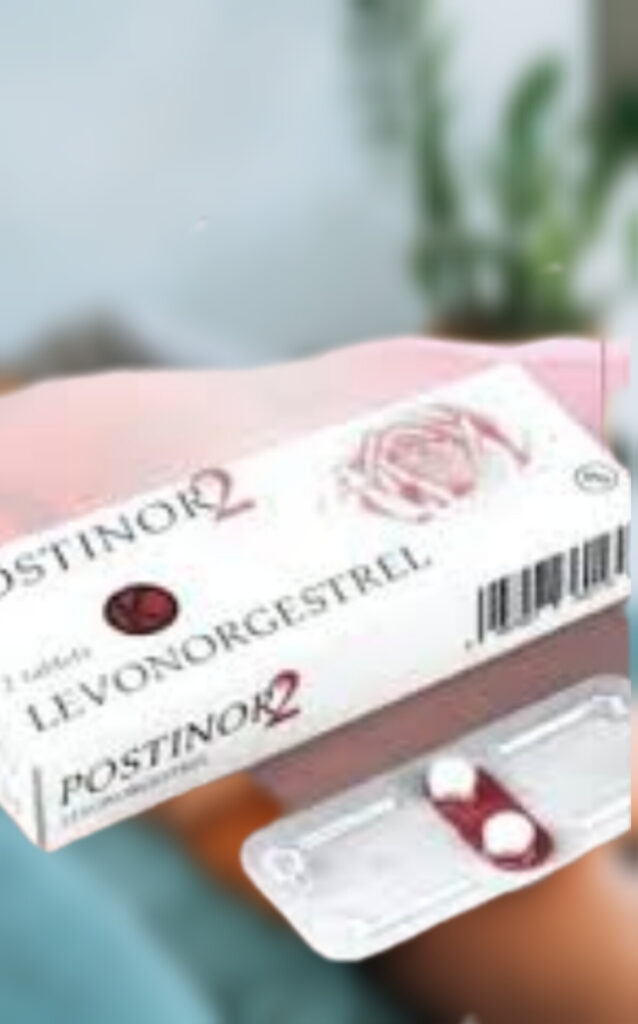Table of Contents
Introduction
Unprotected sex or contraceptive failure can create a situation where emergency contraception is needed to prevent unwanted pregnancy. One of the most commonly used emergency contraceptive pills is Postinor-2. It is widely available and often considered a quick solution to prevent pregnancy after unprotected intercourse. However, many people do not fully understand how it works, its limitations, and why it may sometimes fail.
This article explores the effectiveness, potential reasons for failure, misconceptions, side effects, and alternatives to Postinor-2, helping you make informed decisions about emergency contraception.
How Postinor-2 Works
Postinor-2 is a type of emergency contraceptive pill (ECP) that contains levonorgestrel, a synthetic hormone that mimics progesterone. It helps prevent pregnancy primarily by:
Delaying Ovulation: If ovulation has not occurred, Postinor-2 works by slowing the release of an egg from the ovary, ensuring that sperm present in the reproductive system does not meet an egg for fertilization.
-Thickening Cervical Mucus: It thickens cervical mucus, making it difficult for sperm to move through the cervix and reach an egg.
- Preventing Fertilized Egg Implantation: In some cases, if fertilization has already occurred, the pill may make the uterine lining less receptive to implantation.
However, Postinor2 does not terminate an existing pregnancy. If implantation has already happened, the pill will not be effective.

Why Postinor-2 May Not Prevent Pregnancy
Despite its popularity, Postinor2 is not 100% effective. Here are some key reasons why it may fail:
- Timing of Use (Late Administration)
For maximum effectiveness, Postinor2 must be taken as soon as possible after unprotected sex. It is most effective within 24 hours (up to 95%) but drops to around 58% effectiveness if taken between 48-72 hours. If taken beyond 72 hours, its ability to prevent pregnancy is significantly reduced. - Ovulation Timing and Fertility Window
Postinor-2 works best before ovulation. If a woman takes it after ovulation, the pregnancy chances increase significantly because the egg is already available for fertilization. If sperm meets an egg before the pill takes effect, pregnancy may occur. learn how to calculate your ovulation period - Body Weight and BMI Effects
Studies suggest that Postinor2 may be less effective in overweight or obese individuals. Women with a BMI (Body Mass Index) over 30 may have a reduced response to the drug, increasing the likelihood of pregnancy. - Drug Interactions (Medications That Reduce Effectiveness)
Certain medications can reduce the effectiveness of Postinor2. These include:
-Antibiotics like Rifampin
drugs that affect the effectiveness of postinor2
- Anti-epileptic drugs (e.g., phenytoin, carbamazepine)
- HIV medications (e.g., ritonavir)
- St. John’s Wort (a herbal supplement)
These drugs speed up the breakdown of levonorgestrel in the body, making the pill less effective.
- Multiple Use and Reduced Efficacy
Using Postinor-2 multiple times within a short period may cause hormonal imbalances, making it less effective. Frequent use can also disrupt the menstrual cycle, making it harder to predict ovulation and fertility windows. - Vomiting After Taking the Pill
Some women experience nausea and vomiting after taking Postinor2. If vomiting occurs within 2 hours of taking the pill, the body may not absorb the medication, reducing its effectiveness. In such cases, another dose should be taken immediately. - Underlying Health Conditions
Conditions such as Polycystic Ovary Syndrome (PCOS) or other hormonal imbalances may interfere with how the body processes levonorgestrel, leading to reduced effectiveness.

Common Misconceptions about Postinor-2
There are several myths and misconceptions about Postinor-2 that need to be clarified:
- Is Postinor-2 an Abortion Pill?
No, Postinor-2 is not an abortion pill. It prevents pregnancy before it happens but does not terminate an already established pregnancy. - Can It Be Used as a Regular Contraceptive?
No, Postinor 2 should not be used as a regular birth control method. It is only meant for emergency use. Regular contraceptives like birth control pills, IUDs, or implants are more reliable for ongoing protection. - Does It Work 100% of the Time?
No contraceptive method is 100% effective, including Postinor2. While it significantly reduces the risk of pregnancy, failure is still possible, especially if taken late or during ovulation. read more about postinor-2
Side Effects and Risks
While Postinor-2 is generally safe, it can cause side effects, including:
Short-Term Side Effects:
- Nausea and vomiting
- Dizziness or fatigue
- Headache
- Breast tenderness
- Abdominal pain
Long-Term Risks of Frequent Use: - Irregular menstrual cycles
- Hormonal imbalance
- Potential decreased effectiveness over time
Alternatives to Postinor-2
If Postinor2 is not suitable or available, other options exist:
- Other Emergency Contraceptive Pills
Ella (Ulipristal Acetate): More effective than Postinor2, especially if taken later (up to 5 days after sex). - Copper IUD (Intrauterine Device)
- The most effective emergency contraception (over 99%) if inserted within 5 days of unprotected sex.
- Can also serve as a long-term contraceptive for up to 10 years.
- Regular Contraceptive Methods
To prevent the need for emergency contraception, consider:
- Birth control pills
- Contraceptive injections
- Implants or IUDs
- Condoms for added protection
What to Do If Postinor-2 Fails
If you suspect that Postinor2 did not work, here’s what to do:
- Watch for Pregnancy Symptoms
Early signs of pregnancy include:
- Missed period
- Nausea and vomiting
- Fatigue
- Breast tenderness
- Take a Pregnancy Test
If your period is delayed by more than 7 days, take a pregnancy test to confirm if the pill worked. - Consult a Healthcare Provider
If pregnant, speak with a doctor about your options, whether you wish to continue or terminate the pregnancy.
Conclusion
Postinor-2 is a helpful emergency contraceptive, but it is not guaranteed to be effective in every situation. Factors such as the timing of use, body weight, drug interactions, and the timing of ovulation can all impact its effectiveness. While it can prevent pregnancy when used correctly, it should not be used as a substitute for regular birth control methods.
For individuals who find themselves needing emergency contraception frequently, it is advisable to consult a healthcare provider to discuss a long-term contraceptive plan.

